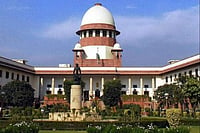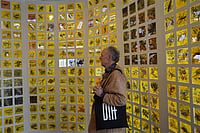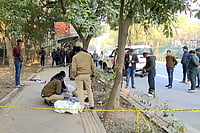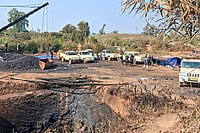When Indian foreign minister K. Natwar Singh meets his Pakistani counterpart Khursheed M. Kasuri on September 4 and 5 in New Delhi, they will take stock of the progress registered in the first round of composite dialogue between the two countries. And see in what ways they can push it forward. However, both will realise that no progress has been registered on the contentious issues of Siachen, Jammu and Kashmir, Sir Creek, Tulbul Navigation/Wullar Barrage.
That, though, is no reason for Indo-Pak watchers to feel pessimistic. For, a nuanced forward movement is expected in other areas where discussions have been held. These relate to terrorism and drug trafficking, and promotion of friendly exchanges in various fields. New Delhi has made over 30 proposals (see accompanying list) to promote such exchanges. Sources say both India and Pakistan have already agreed in principle to expand the list of religious shrines their citizens can visit and increase the annual quota of pilgrims. A more enlightened policy on prisoners in each other's custody too might emerge.
Sources claim there is a distinct possibility of India and Pakistan working together on tackling transborder organised crime, cross-border smuggling, funds transfers, and cybercrime. There is also a proposal to expand cooperation between the CBI and Pakistan's FIA.
India has made several proposals to expand economic cooperation, beginning with a request to Pakistan to grant India MFN status. Sources say though India has accorded Pakistan MFN status, exports to India haven't gone up. Pakistanis feel this is because of the high tariff structures in India. Islamabad proposed that a team come and study the situation in India. New Delhi welcomed the idea, but it isn't clear when such a team will visit.
Islamabad has said it would examine New Delhi's proposals to strengthen economic ties. These include opening up the Attari-Wagah land route for trade, reciprocal transit facilities, and to explore possibilities of opening branches of nationalised banks in each other's country.
The only good news from the Siachen talks is that the ceasefire, in operation from November last year, will continue. Though both sides agree on redeployment, the modalities for achieving this have become contentious. Pakistan wants redeployment to the positions held at the time the Simla agreement came into force. New Delhi, after the Kargil experience, wants present positions to be authenticated before any redeployment.
Sources say Kargil was also discussed because of continued Indian presence in Chor Batla, Qamar and Shyok (in Siachen sector). New Delhi said these could be discussed later, precisely what former foreign minister Jaswant Singh told his counterpart Sartaj Aziz during the Kargil crisis. It seems India is cautious on account of Kargil, and Pakistan because of the way India altered the ground situation in Siachen, despite the Simla agreement's injunctions to the contrary.
Conversational Lull? No Chance Here
It is still skirting the contentious issues. But India finds plenty else to talk about with its neighbour.

Conversational Lull? No Chance Here
Conversational Lull? No Chance Here
Published At:
MOST POPULAR
WATCH
MORE FROM THE AUTHOR
×




















